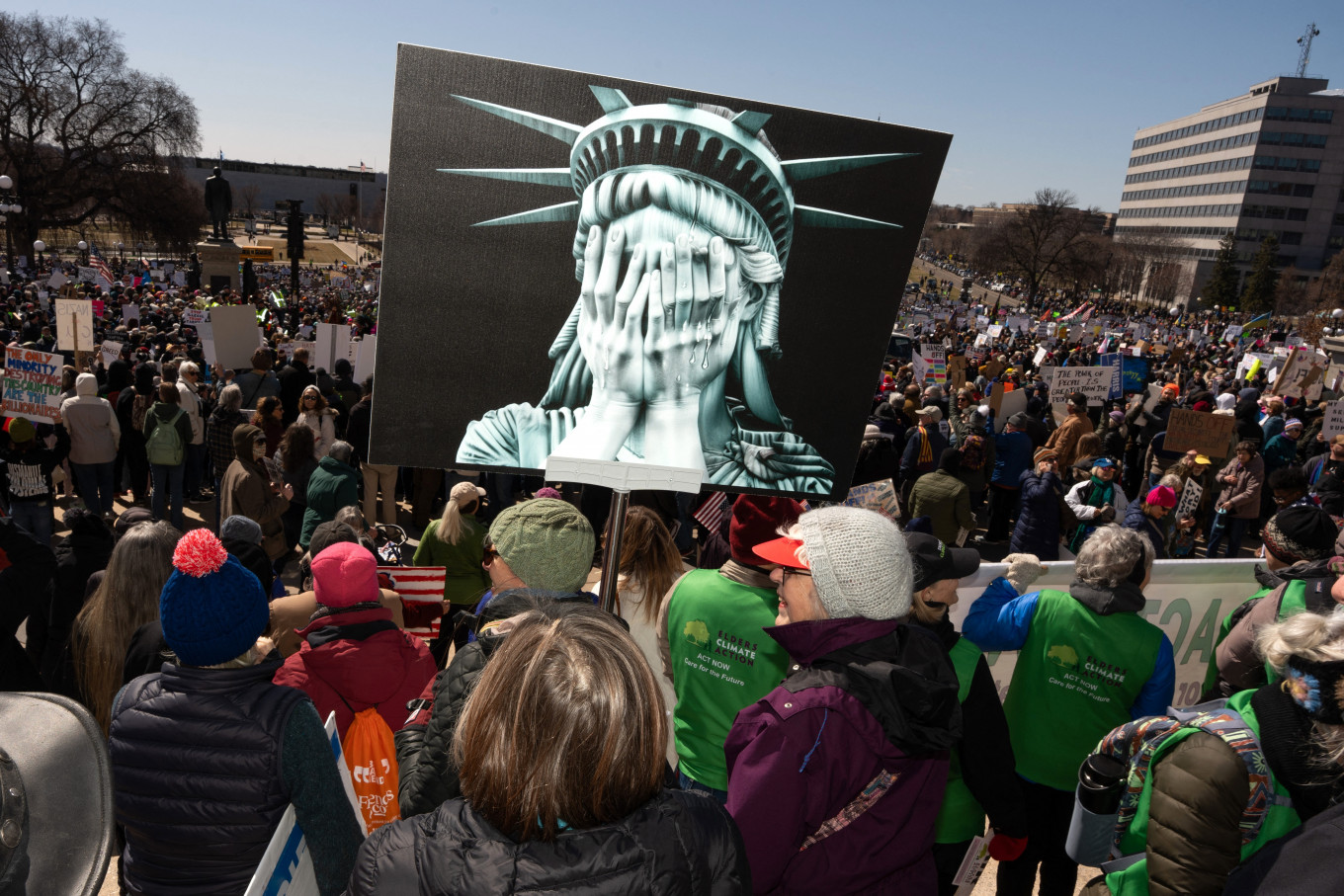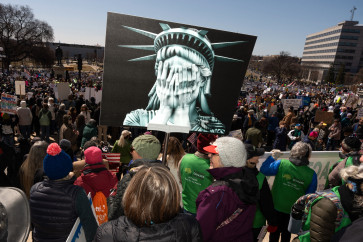Popular Reads
Top Results
Can't find what you're looking for?
View all search resultsPopular Reads
Top Results
Can't find what you're looking for?
View all search resultsTrump's tariff boomerang
The current trade war as a result of Trump's tariff policy is not truly global, and we should not be distracted by this from focusing on the real danger the US president poses in terms of democracy, social justice and human dignity the world over.
Change text size
Gift Premium Articles
to Anyone
M
ost trade pundits (and a few others) were shocked by the magnitude of United States President Donald Trump’s tariff announcements on April 2: a replica of McKinley’s famous tariff wall of 1890, or of the Smoot-Hawley legislation of 1930.
If there are lessons of history, these precedents are bad omens indeed. But this is not the only reason to believe that once again, the US – and to a lesser extent, all of us – will pay dearly for such a massive blunder. Hopefully however, and as a consequence, is unlikely to last very long.
There are several other factors at play.
Without entering into any technical details, let us consider the three layers of tariffs that were announced: a floor of 10 percent to increase budget revenues, a sectoral tariff of 25 percent (for cars, steel, aluminum etc.) to “reindustrialize” the country and a so-called reciprocal, unilaterally (and by many accounts weirdly) determined tariff as a blackmail tool to gain whatever advantages for the US in negotiations in exchange for removing the threat. A typical mafia-like method.
All in all, this amounts to a tariff fence around the US of around 25 percent for 80 percent of imports, the remaining 20 percent being raw materials or their equivalent.
If implemented, the immediate impact will be to slow down imports (thus reducing the expected budget bonanza), trigger inflation, prompt interest rate hikes and consequently reduce economic growth. Industry re-localization is unlikely to happen, given the higher production costs in the US and the added cost of imported inputs and components in an economy that presently has quasi full employment, including immigrants.
Arm-twisting negotiations might bring marginal concessions from small countries with no capacity to retaliate, but it will not work with big shots such as the European Union, China or India, which are unlikely to cave in even if they keep the door open to win-win negotiations.



















